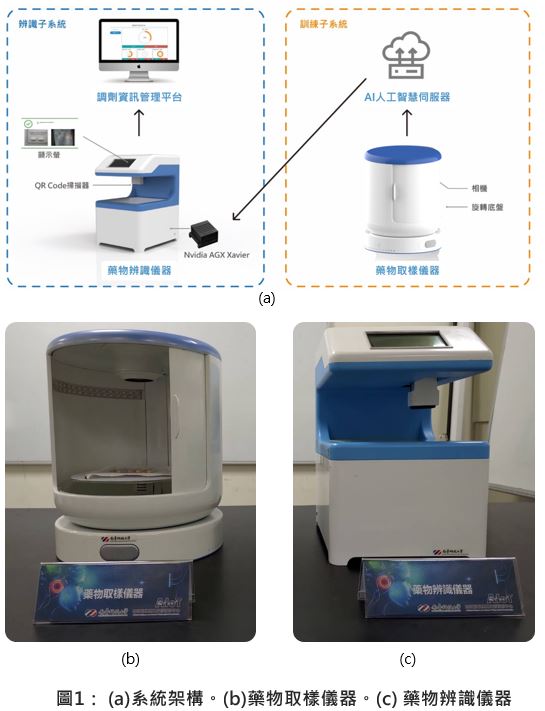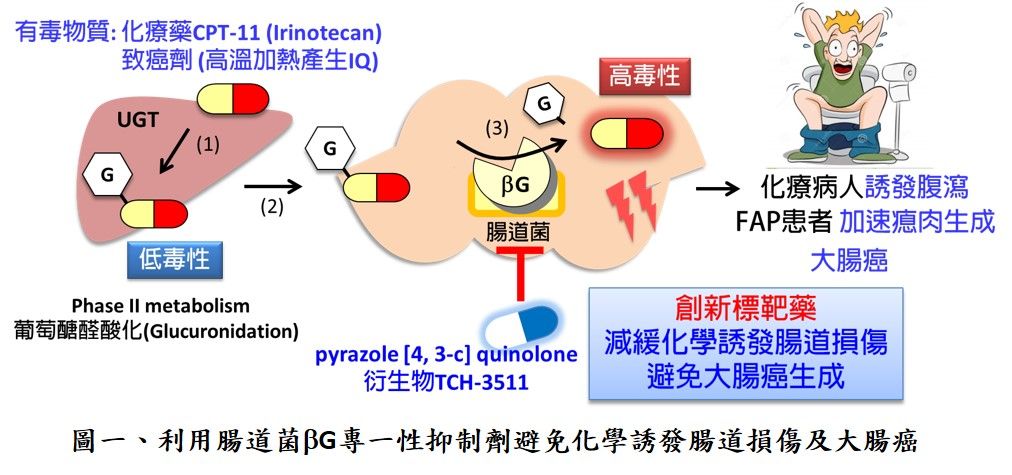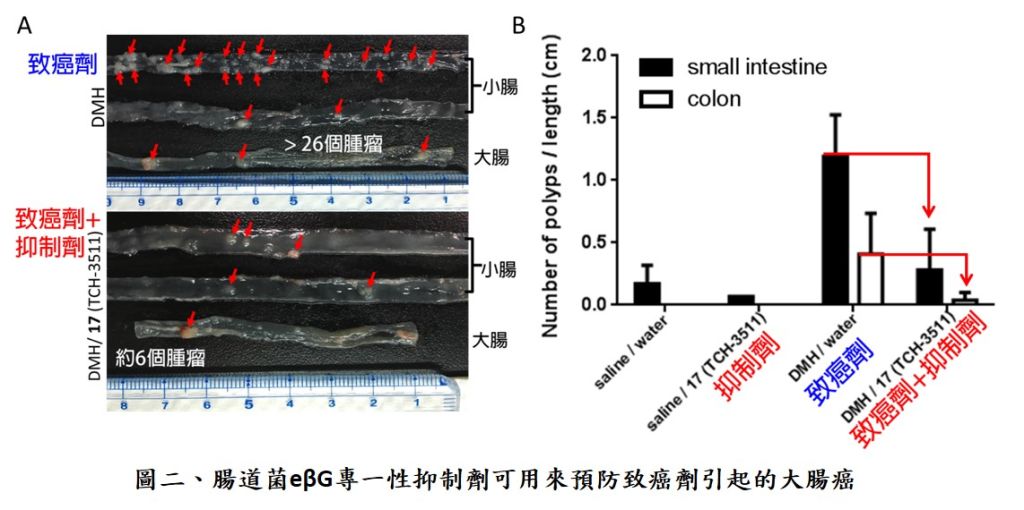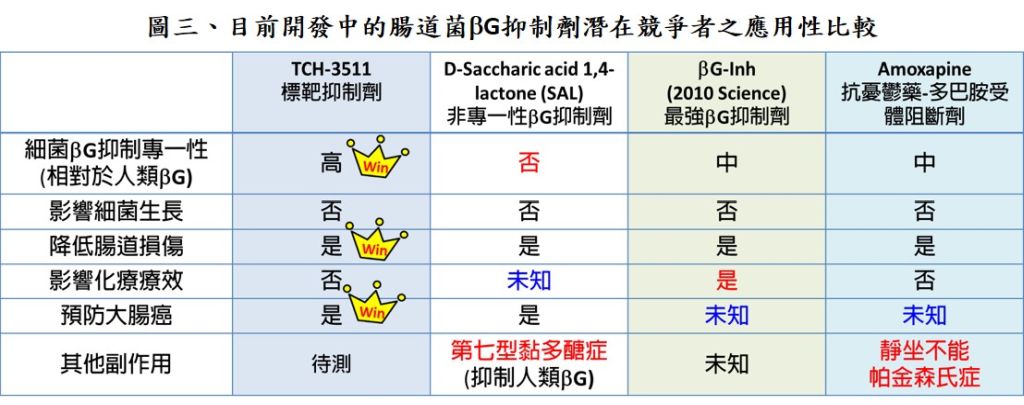| Technical Name | A novel drug for preventing chemical-induced intestinal damage and treating familial adenomatous poliposis | ||
|---|---|---|---|
| Project Operator | Kaohsiung Medical University | ||
| Project Host | 鄭添祿 | ||
| Summary | Chemotherapy drugs or toxic chemicals which are detoxified through hepatic glucuronidaiton can be reactivated by eβG back to toxic form and thus inducing intestine damage, diarrhea, carcinogenesis, and colon cancer. We developed eβG specific inhibitor as a novel chemotherapy adjuvant or chemoprevention drug for preventing chemical-induced damage and the development of colon cancer in FAP patients. |
||
| Scientific Breakthrough | Bacterial βG-specific inhibitor as a novel drug for preventing CID and colon cancer, which has following characteristics: (1) specific inhibition of intestinal eβG, (2) highest inhibit effect and lowest toxicity, (3) does not affect the growth of probiotics, (4) specific act in the intestine, (5) widely used to prevent CID, (6) does not affect the drug efficacy, (7) can prevent colorectal cancer. |
||
| Industrial Applicability | Chemotherapy adjuvant and chemoprevention drug to prevent chemotherapy-induced intestinal damage and diarrhea, thus improving patients' quality of life and increasing patient's drug tolerance to increase therapy efficacy. |
||
| Keyword | Glucuronidation bacterial β-glucuronidase (βG) βG-specific inhibitor colorectal cancer chemotherapy adjuvant chemotherapy-induced diarrhea pyrazolo [4, 3-c] quinolone chemoprevention drug familial adenomatous poliposis Irinotecan (CPT-11) | ||
- ijuchenbean@gmail.com
other people also saw







